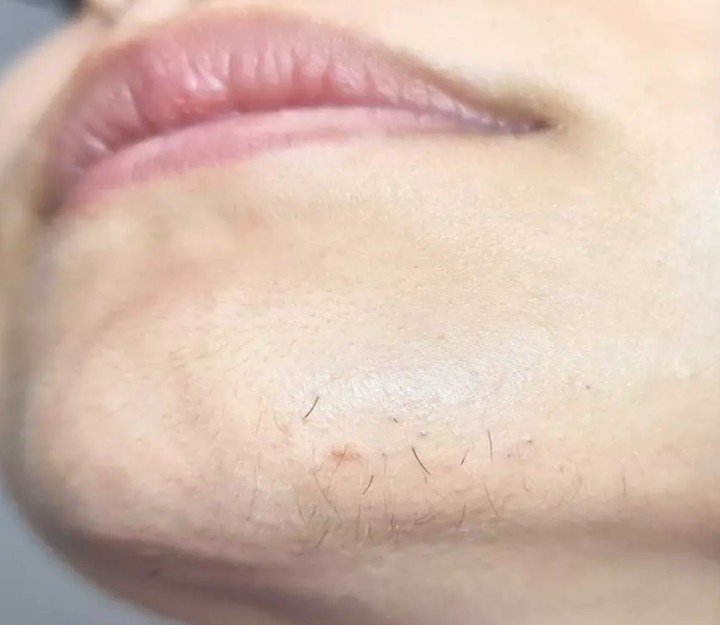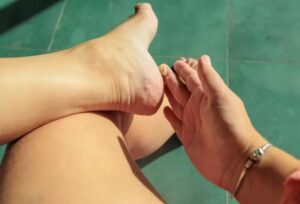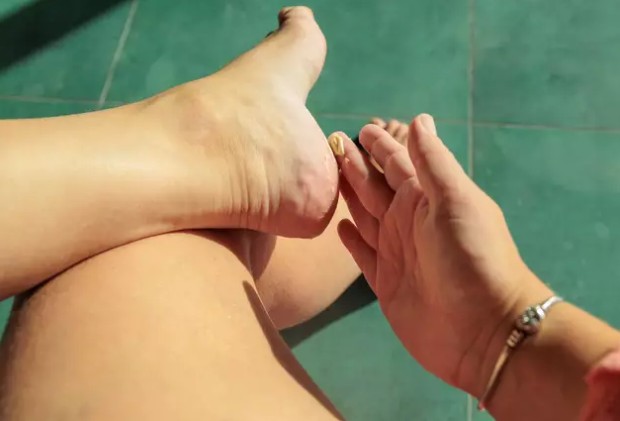Waking up to discover a stray chin hair—or several—can feel frustrating, confusing, and sometimes embarrassing. But here’s the truth: you’re not alone. Many women experience chin whiskers at some point in their lives, and while society often treats it as a taboo topic, it’s actually quite common and very natural.
Understanding why chin hair appears, what it means for your health, and how to manage it can help you approach the issue with more confidence and less stress.
🔬 Why Do Chin Hairs Appear? A Look at the Science
Just like every other type of body hair, chin hair follows the growth cycle:
Anagen: the active growth phase
Catagen: the transition phase
Telogen: the resting phase
The major player here is androgens, a group of hormones that includes testosterone. While women naturally produce small amounts of androgens, when levels are slightly higher—or when hair follicles are more sensitive to these hormones—visible facial hair may increase.
Genetics also play a role, influencing follicle density and distribution, meaning some women naturally have more hair growth than others.
🌺 Hormonal Influences Behind Facial Hair in Women
Hormones are often the root cause of chin whiskers:
Polycystic Ovary Syndrome (PCOS): One of the most common conditions linked to excessive hair growth (hirsutism). PCOS raises androgen levels, often leading to chin hair, acne, and irregular periods.
Menopause: Hormonal shifts during this stage can trigger new facial hair growth.
Medications: Birth control pills, steroids, and hormone therapies may also affect hair patterns.
👩👩👧 Is It in Your DNA? The Role of Genetics
If your mother, grandmother, or other female relatives dealt with chin whiskers, chances are you may, too. Ethnicity is another factor—women of Middle Eastern, South Asian, and Mediterranean heritage often experience more facial hair than women of other backgrounds.
🚩 When Facial Hair Signals a Health Issue
While a few chin hairs are normal, sometimes sudden or excessive growth may indicate an underlying medical condition, such as:
Cushing’s syndrome
Adrenal gland disorders
Certain tumors
Hypothyroidism
👉 If you notice rapid changes along with symptoms like weight gain, irregular cycles, or acne, it’s important to consult a doctor.
💭 The Emotional Side: How Chin Hair Affects Women
Chin whiskers aren’t just a cosmetic issue—they can impact mental and emotional well-being. Here are the top ways women describe its effect:
Embarrassment or shame
Stress about appearance
Time-consuming grooming routines
Skin irritation from frequent removal
Social or romantic hesitation
Body image struggles
Anxiety-driven “mirror checking”
Avoiding photos or events
Worry about hidden medical issues
Increased risk of anxiety or depression
🌿 How to Manage Chin Whiskers
There’s no one-size-fits-all solution, but there are effective management options:
🪒 At-Home Methods
Tweezing: Quick and precise, but can cause irritation.
Waxing/Sugaring: Removes multiple hairs at once; may sting.
Shaving: Fast and painless, though hair grows back quickly.
🧴 Topical Treatments
Prescription creams (like eflornithine) can slow growth.
💡 Professional Treatments
Laser hair removal: Long-term solution for reducing hair density.
Electrolysis: Permanently destroys hair follicles but requires multiple sessions.
🧘 Mental and Emotional Well-being
Beyond physical management, it’s important to recognize the emotional weight of chin whiskers. Talking openly about it, seeking medical advice when necessary, and reminding yourself that this is a common experience can help ease the stress.
Self-care, confidence-building routines, and connecting with supportive communities can make the journey easier
✨ Final Thoughts
Chin whiskers may come as a surprise, but they are far from unusual. Whether caused by hormones, genetics, or medical conditions, they are part of a natural process many women share.
Instead of seeing them as a source of embarrassment, understanding the why behind the growth and exploring safe, effective management strategies can empower you to face it with confidence.
So next time you spot a stray chin hair, remember—you’re not alone, and it doesn’t define your beauty.












